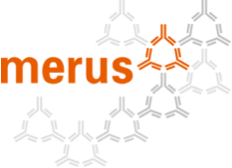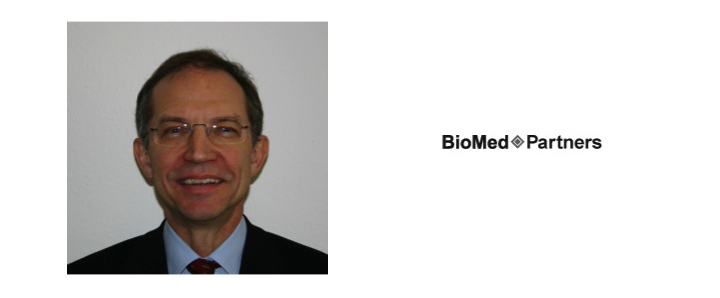News
Company News: VAXIMM Completes Enrollment of First Oral Cancer Vaccine Trial
VAXIMM AG, a Swiss-German biotech company focusing on oral cancer vaccines, announced today that it completed enrollment in the first clinical trial of its investigational oral therapeutic cancer vaccine VXM01. The randomized, placebo-controlled, double-blind Phase I/II dose escalation study enrolled 45 patients with inoperable pancreatic cancer at the Heidelberg University Hospital (Heidelberg, Germany). In addition to standard-of-care treatment, the patients received several doses of VXM01, a therapeutic cancer vaccine targeting the tumor vasculature. The results of the first, blinded part of the study are expected in the first quarter of 2013.
The investigational therapeutic vaccine VXM01 is designed to stimulate the patients’ own immune system to destroy tumor-associated blood vessels. It is the first therapeutic cancer vaccine in clinical development that does not target the cancer cells directly. Instead, it addresses the tumor stroma, a structure essential for growth and metastasis formation of solid tumors. VXM01 is also the first investigational therapeutic cancer vaccine which is administered orally and which acts in the gut to induce an anti-tumor response of the immune system.
akampion Meets… Dr. Markus Hosang, General Partner at BioMedPartners
Markus Hosang, General Partner at BioMedPartners, has a strong pharmaceutical and VC background. He was previously Venture Partner at MPM Capital. Prior to joining MPM in 2002, he was at Roche, where he served for nearly 20 years in several senior management positions in the Pharma R&D organization.
akampion: If you could give some advice to aspiring or very junior venture capital professionals, what would it be?
Markus Hosang: There are usually two approaches to becoming a venture capital professional. First, you can join as an Associate or Analyst pretty early on if you have a strong scientific background, combined with a business degree (MBA). The second route is gaining extensive management and executive expertise in big pharma or biotech companies and subsequently joining a VC firm as a Partner. In general, I believe that operational experience in pharma or biotech companies is very important if you want to succeed in the venture capital industry. Even Associates or Analysts should bring some years of industry experience, not just a strong scientific background.
When I was at Roche, I was fortunate to be part of an innovation-driven environment and management team of the company. Since then, I have always been attracted to pioneering industry trends – but I also had the chance to learn from failures.
akampion: So what are your investment criteria if you look at healthcare companies?
Markus Hosang: Data, science and patents have to be convincing. Equally important are growth perspectives and market environment. The third point, which is crucial and often overlooked, is the executive team – what are their strengths and weaknesses? Will they be able to deliver? In the past, I have often been disappointed by executives and founders with a pure academic background. On the other hand, if executives join a small company from big pharma, they need to prove that they can do without a huge corporate infrastructure. Will they be moving fast enough? But I also have to admit that I underestimated a few teams in the past.
akampion: What is the key difference between US and European companies?
Markus Hosang: In the US, there are clearly a lot more serial entrepreneurs who are very hands-on and pragmatic. There is a „done it before“ attitude. We don´t really have a serial entrepreneurial spirit in European healthcare yet.
akampion: What has changed in the healthcare industry over the past ten years?
Markus Hosang: The endpoints in biopharmaceutical drug development have definitely changed – not just at the FDA and EMA, but also in terms of reimbursement criteria. For investors, the emphasis has shifted even more to exit strategies and value inflection points. Exits happen earlier – often times, companies are factually being „leased“ by milestone-driven payments, which allow for staged acquisitions instead of buying a company as a whole.
akampion: What is your opinion on the current financing situation in Europe?
Markus Hosang: European private equity financings have been very generous in the past, but this has changed over the last couple of years. There is currently a shortage of funds in Europe, and as a result, there is a weeding out going on, which has even started to affect good companies. However, an excellent management team will source other funds and identify financing alternatives, such as grants. A good example here is Okairos in Italy.
akampion: At what stage do you invest in a company? And why did you choose to focus your investments on the Alpine region?
Markus Hosang: Before I consider an investment, the founders should have done their homework properly and also should have made some initial investments themselves. There must be a convincing business plan, maybe they have even won a business plan competition. The seed round must have completed successfully. Start-ups in Switzerland often hire mentors or advisors with a pharma background, which is a great advantage. The Alpine region is a very fertile ground. It has a very strong pharma industry and infrastructure, there are excellent universities and research institutions, and everything is located in the vicinity, easy to reach in a few hours. The latter point is particularly important for us as very active and involved investors, as it permits us to see our companies without too much (travel) efforts and on short notice, if required.
akampion: What motivates and inspires you in your daily work?
Markus Hosang: I very much enjoy applying my professional skills to a continuously broadening scope of activities. And I am thrilled to generate value and to keep track of a quickly developing sector, and perhaps, albeit indirectly, contribute to the solution of a still unmet medical need. Last not least, I love the collaboration and interaction between various teams and boards that I am on. Therefore, transparency and fairness are extremely important in my work.
Company News: Curetis Completes Enrollment for its EU Trial As Planned
![]()
– Prospective multi-center trial enrolls 800 patient samples in 7 months-
Curetis AG today announced it has completed enrollment for the European clinical trial of its Unyvero™ Pneumonia Application on schedule. More than 800 patient samples were collected until September 30, 2012. Data analysis will be completed in early 2013. Subsequently, results will be published in a major, peer-reviewed journal.
The trial will compare the performance of the Unyvero™ P50 Pneumonia Cartridge with conventional microbiology culture, the current standard of care. Primary endpoint will be clinical sensitivity and specificity for the identification of 17 pathogens covered by the Unyvero™ P50 panel. Secondary endpoints include time to result and correlation of resistance marker detection with phenotypic antibiograms. Curetis will conduct systematic discrepant results resolution by PCR and sequencing to confirm the clinical truth in samples where Unyvero results differ from microbiology culture.
The study complements the previously completed CE performance evaluation study, in which the Unyvero P50 Cartridge identified a significant number of additional pathogens not detected by microbiology culture. These findings were confirmed by PCR analysis.
Company News: Merus Announces the Full Validation of Its MeMo® Transgenic Mouse for Common Light Chain Human Antibodies

Merus B.V., a biopharmaceutical company focused on innovative human antibody therapeutics, announced today the full validation of its transgenic MeMo® mouse for common light chain human antibodies. The MeMo® mouse creates human antibody diversity using a large repertoire of human heavy chains paired with a common human light chain.
“Over the last year, we have immunized MeMo® mice with half a dozen antigens and analyzed the immune response,” said Mark Throsby, COO at Merus. “We are extremely excited by the performance of the MeMo® technology; serum antibody titers as well as size, diversity, functionality and developability of antibody panels are comparable to those of wild type mice.”
“In MeMo®, a single human light chain drives the generation of a normal B cell compartment as well as supports a robust immune response,” said Ton Logtenberg, CEO and founder of Merus. “The large and diverse panels of high-quality human antibodies that we retrieve from MeMo® show that this platform is comparable to the best-in-class transgenic platforms using diversified heavy and light chains.”
Because of the common light chain, MeMo®-derived antibodies can be immediately used to rapidly generate thousands of bispecific antibodies (Biclonics™) and combinations of antibodies (Oligoclonics®) for functional screening. Merus has shown that the quality and diversity of common light chain antibodies drives the success of identifying Biclonics™ with unprecedented potencies for application in oncology. The MeMo® mouse is available for licensing.


